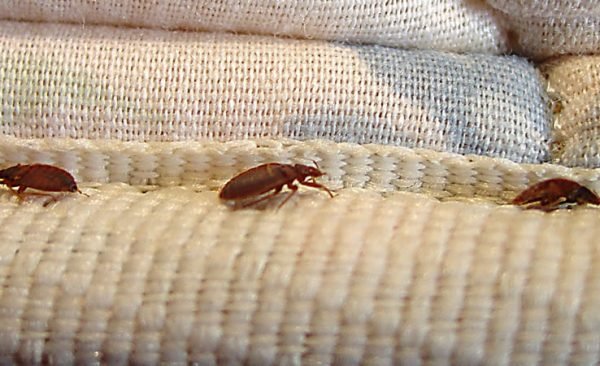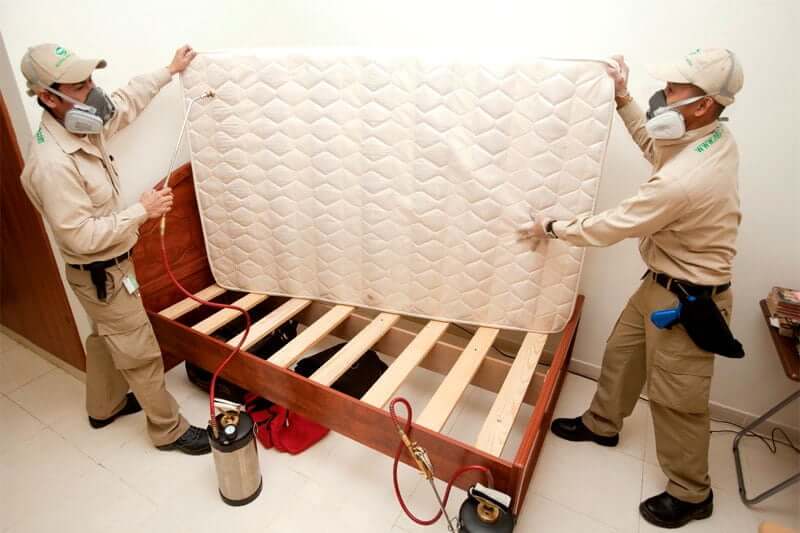Affordable Bed Bug Heat Treatment for Quick and Effective Results
Affordable Bed Bug Heat Treatment for Quick and Effective Results
Blog Article
Obtain Informed Regarding the Kinds of Pest Control Methods and Their Advantages for Property Owners
Recognizing the various insect control techniques offered to home owners is crucial for reliable insect management. From chemical and organic methods to cultural and mechanical techniques, each technique presents unique benefits that can dramatically impact both health and wellness and ecological safety and security. Homeowners who are well-informed can make critical choices that not only address pest issues however likewise improve the general high quality of their living setting. As we discover these approaches further, it becomes clear that the decision-making process involves greater than simply immediate outcomes; it discuss lasting sustainability and health. What variables should affect these critical choices?
Chemical Parasite Control Methods
Chemical pest control techniques are an important part of integrated bug management methods for homeowners looking for effective services to pest invasions. These techniques entail the application of chemical materials developed to get rid of or discourage parasites that endanger personal effects, health, and convenience. Usual chemicals utilized consist of insecticides, rodenticides, herbicides, and fungicides, each tailored to target certain bugs.
The main benefit of chemical pest control is its fast performance; numerous solutions offer immediate results, lowering pest populations substantially in a short time. Additionally, breakthroughs in chemical formulations have caused items that are more eco-friendly and have reduced poisoning degrees for non-target microorganisms when applied properly.

Biological Bug Control Strategies
All-natural pest control methods have gotten prominence as homeowners look for more secure and a lot more lasting alternatives to traditional chemical methods. Biological insect control strategies utilize natural killers, parasites, or microorganisms to handle bug populaces properly. This approach is not just eco-friendly however likewise reduces the danger of harm to non-target species, including advantageous insects and wild animals.
Among one of the most typical biological control methods involves presenting all-natural predators into the setting. For instance, ladybugs can be utilized to manage aphid populations, while nematodes target soil-dwelling pests like grubs. In addition, parasitoids-- microorganisms that reside on or within a host-- can be employed to regulate certain insect varieties by laying eggs inside them, ultimately resulting in their death.
An additional method is using biopesticides, which are acquired from natural materials such as plants, minerals, or germs (bed bug exterminator). These products can effectively target bugs while positioning marginal danger to pets and people. Overall, organic pest control methods provide house owners with an efficient means of parasite management that straightens with ecological principles, advertising a healthier living atmosphere while reducing reliance on artificial chemicals
Mechanical Parasite Control Techniques
Mechanical parasite control strategies include a selection of methods that physically stop or remove pests without the use of chemicals. These methods are specifically advantageous for house owners looking for eco-friendly choices while making sure the safety and security of their space.
One common technique is the usage of obstacles, such as displays, traps, and webs, which prevent parasites from going into homes or certain locations. Mounting home window displays can properly maintain pests out, while utilizing physical barriers around gardens can deter bigger parasites like bunnies or deer. Additionally, mechanical traps designed for rats can catch and eliminate these insects without the need for toxic materials.
One more effective strategy entails the usage of mops and vacuums to remove parasites directly from surface areas. Routine cleaning and upkeep can dramatically minimize bug Learn More Here populations by removing food sources and concealing areas. Furthermore, utilizing devices like ultrasonic bug repellents can discourage various bugs via noise waves that are undesirable to them however faint to people.
Cultural Bug Control Practices
Cultural pest control techniques focus on customizing the environment and administration strategies to create problems that are much less favorable to pest problems. These methods are basic in maintaining a balanced ecological community and decreasing the dependence on chemical treatments. By changing farming methods, home owners can effectively discourage parasites while promoting plant health.
One common approach consists of plant turning, which interferes with the life process of insects by transforming the sorts of plants expanded in a certain area (bed bug exterminator). This not just lessens pest populaces yet also improves soil wellness. In addition, intercropping-- planting varied crops in proximity-- can puzzle insects and minimize their capacity to find their recommended host plants
Water monitoring is another important facet of social techniques. Correct watering techniques can avoid standing water, which acts as a breeding place for mosquitoes and various other parasites. Maintaining sanitation in and around the home, such as consistently getting rid of debris and food waste, can considerably reduce parasite destination.
Integrating these cultural techniques right into an extensive pest monitoring approach enables property owners to create a setting that naturally hinders bugs, thus boosting the efficiency of other control approaches while promoting lasting gardening and landscape design.

Integrated Pest Management Approaches
Integrated Pest Monitoring (IPM) stands for an all natural strategy that incorporates different techniques to efficiently take care of bug populaces while reducing environmental impact. This method incorporates organic, cultural, physical, and chemical techniques to accomplish sustainable parasite control. By analyzing pest populations and their natural adversaries, IPM stresses tracking and identifying pests prior to carrying out control steps.
Among the core principles of IPM is the use of limits, which establish the level of parasite activity that warrants treatment. This makes sure that treatments are used only when essential, minimizing the dependence on chemical pesticides. Biological control approaches, such as introducing all-natural predators or bloodsuckers, work in combination with cultural methods like crop rotation and habitat adjustment to interrupt pest life process.
Additionally, IPM urges the use of least-toxic chemical alternatives when intervention is needed, prioritizing products that posture very little threat to non-target microorganisms and the setting. For home owners, adopting IPM approaches not just enhances the effectiveness of this parasite monitoring yet also promotes a healthier living setting, fostering biodiversity and decreasing chemical direct exposure. Inevitably, IPM empowers house owners to make enlightened decisions that balance bug control with eco-friendly responsibility.
Final Thought
In conclusion, comprehending the numerous insect control techniques encourages property owners to make enlightened decisions pertaining to pest management. Each method-- chemical, organic, mechanical, social, and integrated insect monitoring-- offers distinct benefits that provide to various demands and preferences.
Comprehending the different pest control methods offered to house owners is bed bug infestation important for effective insect monitoring.Chemical parasite control methods are an important component of integrated parasite administration methods for homeowners seeking effective remedies to pest infestations. Overall, biological pest control techniques offer property owners with an effective ways of insect administration that aligns with ecological principles, promoting a much healthier living setting while reducing dependence on artificial chemicals.
Cultural insect control practices focus on changing the setting and administration techniques to create problems that are much less favorable to pest infestations.In conclusion, recognizing the numerous bug control methods empowers home owners to make enlightened decisions concerning pest management.
Report this page